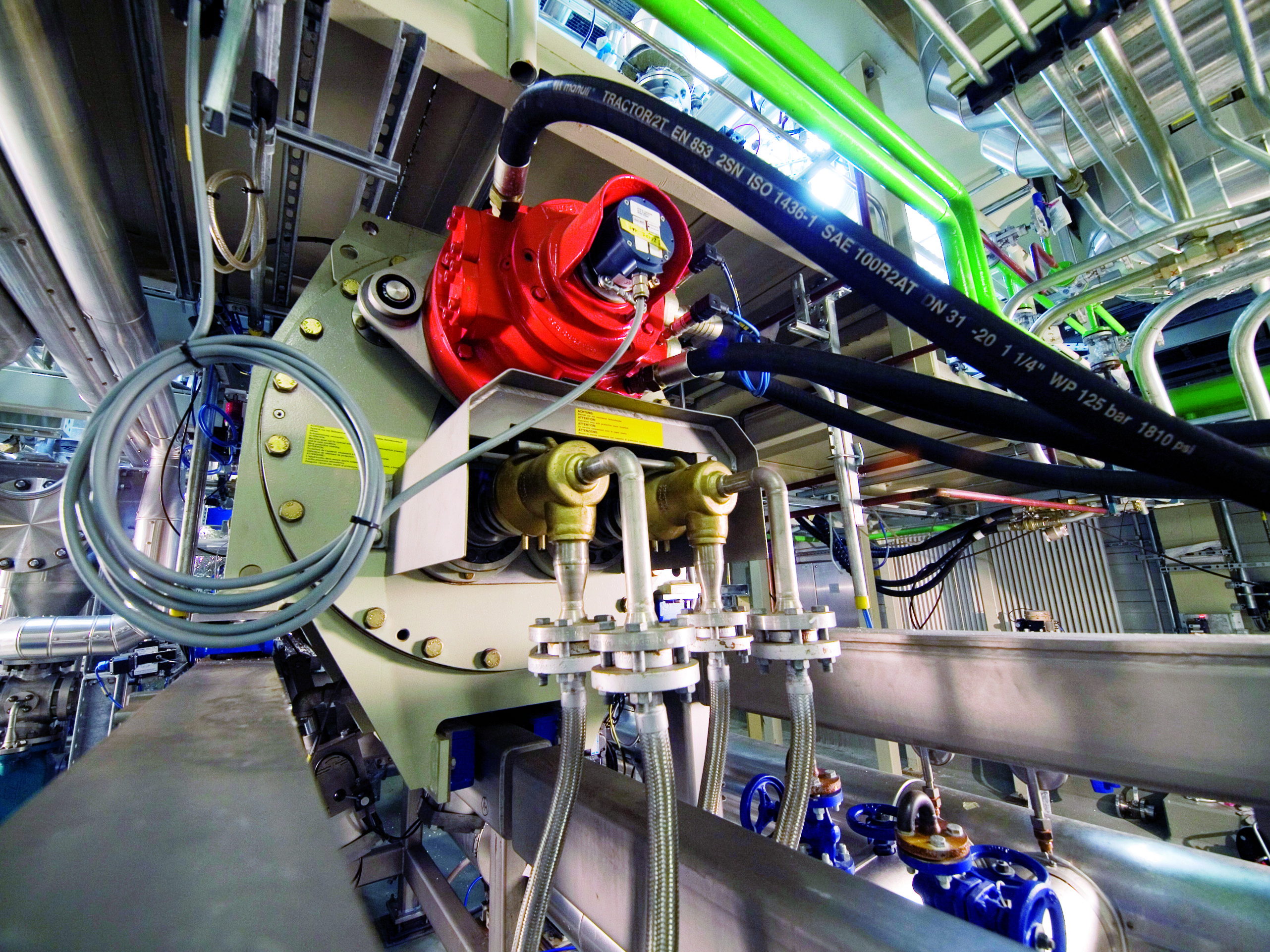Fraunhofer PAZ cuts energy costs in half for the synthetic rubber isolation process
Rubber is a highly sought after raw material, especially when it comes to car tires, rubber products and mattresses. Synthetically produced rubber is an important alternative, not least because the supply of natural rubber fluctuates. Usually substantial amounts of energy are expended to separate it from the solvent used in the production process. The Fraunhofer Pilot Plant Center for Polymer Synthesis and Processing PAZ in Schkopau joined forces with the Swiss company List AG to further develop this innovative process. Their findings: the use of low pressure steam reduces costs by an average of 50 percent.

Solution polymerization is used to produce modern synthetic rubber. Separating the solvent from the rubber polymer is laborious because the rubber tends to cross link as a result of its own double bonds when exposed to heat and mechanical stress. Even though this is desirable in a finished car tire, pre-vulcanization is an unwanted factor in the production process. In order to protect the rubber polymer when it is separated from its solvent, two knead reactors were introduced at the Fraunhofer PAZ, a joint facility of the Fraunhofer Institute for Applied Polymer Research IAP in Potsdam-Golm, and the Fraunhofer Institute for Microstructure of Materials and Systems IMWS in Halle. In a process developed with List AG, researchers set their sights on direct evaporation. This achieved a 75 percent savings in energy, however it involved using relatively expensive electrical energy.
The process has now undergone crucial further development. "It’s true that there were large savings in terms of the amount of energy used. But with a view to keeping the industry competitive, we decided to examine the cost side of things," says Dr. Ulrich Wendler, who heads up synthesis and product development at the Fraunhofer PAZ. In order to replace expensive electricity with cheap thermal energy, the project introduced an additional process step. This optimized the energy cost structure while maintaining robust operating conditions and minimizing investment costs. Using inexpensive, low pressure steam achieved energy cost savings of more than 50 percent regardless of the material and the viscosity of the rubber solution used.
The background to the optimized process is the use of knead reactors which were developed together with industry partner List AG. These are used in combination with a special concentration technology for temperature-sensitive polymer solutions. During conventional coagulation, heat measuring around 100 °C is applied for several hours. In a process developed in 2007, rubber polymers are isolated in a knead reactor which requires temperatures of between 70-90 °C and a dwell time of 30 minutes. The use of this technology has very little impact on the material properties. Another advantage of the process is that the solvent that accrues is almost exclusively water free. The laborious process of drying the solvent can be greatly optimized, which saves additional costs. "The process we have developed has enabled us to make considerable advances in isolating rubber polymers. We have improved our understanding of the process over the years," says Ulrich Wendler in retrospect.
According to Wendler, the basis for this optimization is the ability to scale up information from the pilot plant scale to a scale that is relevant for industry. The Fraunhofer PAZ is able to provide the right systems and the required know-how to do this. Process data is collected for both the lab scale (kneader with 2.5 and 4 liter volumes) and the pilot plant scale (100 and 200 liters). "It isn’t until there is a scaling up by more than two orders of magnitude that the true process and material challenges are revealed," he explains. The only way to achieve larger quantities of a newly developed material securely and without process risks is to use such an approach. According to Wendler, it is a very important and reliable approach for scaling up new technologies to production scale. "Reliably mastering the scaling up of two very different sized systems enables us to significantly minimize risk for large, industrial-scale processes."
About the Fraunhofer PAZ
Since 2005 the Fraunhofer Pilot Plant Center for Polymer Synthesis and Processing PAZ in Schkopau has been developing new polymer products and innovative technologies along the entire value chain – from monomers, to polymer synthesis and plastic processing, ranging from a pilot scale to customized tested components. The Fraunhofer PAZ is unique throughout Europe when it comes to this combination and scale. On behalf of its customers in the plastic and automotive industries, the PAZ customizes a wide range of polymer synthesis and processing methods up to an industry-relevant scale in 1,700 square meters of pilot plant and laboratory space. This also includes light-weight construction and bio-based materials which are able to replace petroleum-based polymers.
The Fraunhofer PAZ is a joint initiative of the Fraunhofer Institute for Applied Polymer Research IAP in Potsdam-Golm and for Mechanics of Materials IWM in Halle. Under the leadership of Prof. Michael Bartke (IAP), the two institutions combine their expertise in polymer synthesis (IAP) and polymer processing (IWM) in a unique way. This collaboration, the technical possibilities on a pilot scale, and the high degree of plant flexibility are unique selling points on the R&D market.
Last modified: